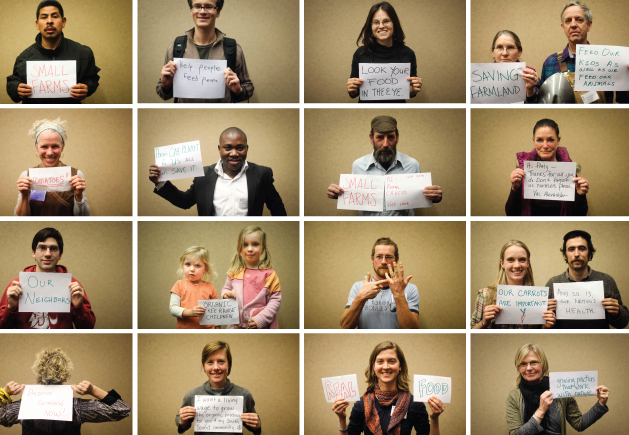The odds that most of us laypeople will have any opportunity to influence this year’s Farm Bill process are looking awfully slim. Sure, there’s still a chance the current, nearly opaque supercommittee process, and the piece of it now known as “the Secret Farm Bill,” could break down. If that happens, the National Sustainable Agriculture Coalition (NSAC) said last week:
It could proceed under a more normal legislative process through both the House and Senate committees early next year, or the current farm bill could be extended for a year, with the committees coming back to work on a new farm bill in 2013.
But it’s also still very possible that the Farm Bill will be passed — if not in secret, now that the word is out, then at least through a process that will put a pane of thick, soundproof glass between us and our lawmakers.
There is a silver lining in all this, however: Rather than tune out, many people at the grassroots level are diving in, determined to understand what’s going on.
Until now, food policy on the national level has been a bit like a formidable, private club. This is evidenced by the fact that even those with fairly informed perspectives still feel the need to begin their blog posts with statements like: “I have a confession to make: I’m intimidated by the Farm Bill.”
Now, people are watching and sharing videos like this one from the folks who brought you the film Nourish, which excerpts pieces of an interview with Michael Pollan.
Or this new one from advocacy group Food and Water Watch, which uses The Biggest Loser to comment on the way the bill has impacted consumers and small farmers in the recent past:
If they have the guts/brains for it, people are also digging in to online tools like the Farm Bill Visualizer from the Johns Hopkins Bloomberg School of Public Health, which attempts to visually explain the complex math around farm subsidies.
Or they’re attending expert panels like this one at Harvard School of Public Health.
Some people are even gathering for face-to-face conversation (shocking these days). In Michigan last week, a group of voters met to strategize ways to reach their local politicians with messages about the Farm Bill. This kind of thing has gone down in a number of states, including California, but Michigan is home to Democratic Sen. Debbie Stabenow, chairwoman of the Senate Committee on Agriculture, one of two committees that has been asked to propose a draft Farm Bill to the supercommittee. The group, said the Huffingont Post, “seeks to provide a food system that is healthy, green, fair, and affordable to all.” The article continues:
“Michigan is well-poised to influence food and farm policy in this country,” said McClurkan. “It has a rich and diverse agricultural heritage.”
Michigan grows over 150 different crops, second only to California. It has a first-class land grant university, greenhouses, good soil, fresh water, community-supported agriculture (CSA) and small farmers.
“This is energy we can rally around,” she said.
Another group gathered in the Pacific Northwest at the Tilth Producers Conference in Yakima Valley, Wash. The result of that event was this inspiring poster that depicts a group of farmers and good food advocates. It reads, “Washington Small Farmers for a Democratic Farm Bill.”
See the whole poster (expertly made by Andrew Plotsky of the media company Farm Run) here.
Tell us what you’re doing to inform yourself and speak out about the 2012 Farm Bill in the comments below.




